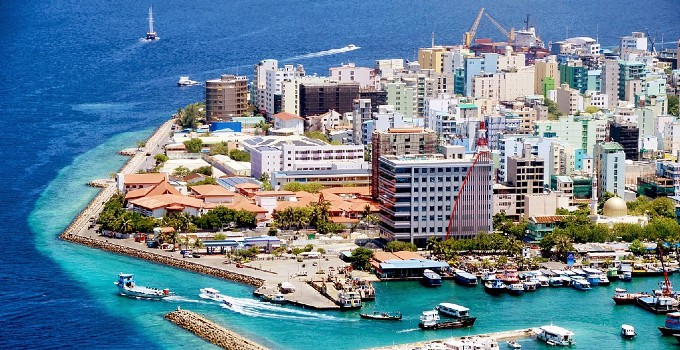ARISE: Accelerating renewable energy integration in the Maldives

Client: Republic of Maldives Ministry of Environment, Climate Change and Technology
Location: Maldives
Date: 2021 - ongoing
Supporting the Maldives to achieve its renewable energy goals
Background
The Republic of the Maldives is the world’s lowest lying country, and extremely vulnerable to the effects of climate change, including rising sea levels and coral bleaching. The nation has a goal of becoming carbon neutral by 2030. However, with a heavily diesel-based energy mix, a significant uplift in renewables and storage will be needed for the Maldives to reach its clean energy goals.
A further benefit of the shift to renewables will be an expected lowering of the very high power prices experienced by businesses and communities, which are driven by high reliance on diesel fuel.
Two projects supported by the World Bank will be critical in achieving the clean energy aspirations of the Maldives: ASPIRE (Accelerating Sustainable Private Investment in Renewable Energy) and ARISE (Accelerating Renewable Energy Integration and Sustainable Energy).
The ASPIRE project aims to de-risk and attract private investment in modernising and upgrading the existing grid, increasing renewable capacity and implementing storage. The ARISE project will see the installation of up to 36 MW of new solar PV (including some floating solar PV), an estimated 50 MWh of Battery Energy Storage Systems (BESS), and grid upgrades across 18 electricity grids powering 21 islands/cities.
Solution
Entura was engaged as Owner’s Engineer for the battery, control and grid upgrade, and to support the specification of connection for the solar PV.
The project involved feasibility studies and extensive financial and economic analysis, power systems modelling and energy modelling of dispersed microgrids across more than a dozen islands and multiple atolls.
Our team conducted studies to optimise the battery sizing, grid upgrade requirements and energy management systems. We analysed recent standards and specifications for battery systems to meet the stringent safety and environmental requirements, particularly to avoid fires and any impacts on the sensitive environment. We also prepared key technical and performance specifications for the battery and energy management system, for which some of the equipment was novel.
As well as the challenges of meeting safety and environmental requirements, our team needed to stay abreast of and accommodate the implications of shifts in the battery industry, which has been experiencing substantial changes in supply chains with associated impacts on costs.
Another complexity in the project was the challenge of planning site visits, given the constraints on international travel during the COVID-19 pandemic. This called for flexibility and the ability to deliver projects effectively from a distance through virtual collaboration.
Outcomes
Feasibility, concept design and full specifications are now complete, and the project is now in the procurement stage. We are applying our depth of experience from many other hybrid renewable energy systems across the Pacific to identify effective approaches to integrating and coordinating multiple contracts – across solar, battery and grid – to align progress and meet commercial objectives.
The project is expected to be operational in 2024.


